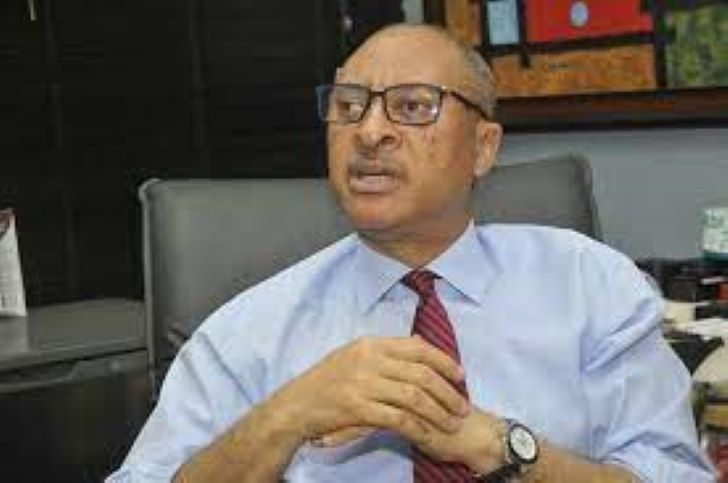*Strong institutions better for sustainable reforms, he insists
Renowned political economist and management expert, Professor Pat Utomi, says the failure of reforms in Nigeria is primarily due to a lack of genuine engagement with the most critical players in the reform process, and resistance from those who benefit from the status quo.
Utomi, who is the Founder/ Chief Executive Officer of Values in Leadership Institute, argues that for reforms to succeed, there is need to build robust institutions to drive development, even in the face of political and bureaucratic resistance.
He bared his thoughts at policy discourse themed ‘How Reforms Succeed or Fail’, hosted in Abuja by Patrick Okigbo III, the Founding/Principal Partner at Nextier, a multi-competency advisory firm that focuses on solving complex development questions.
The discourse converged Africa’s best minds to discuss evidence-based ideas and pragmatic solutions to the continent’s complex development challenges.
The conversation centred around Professor Utomi’s new book, Power, Policy, Politics and Performance, which explored the intricate relationship between politics and performance in Africa’s development, focusing on Nigeria.
The discussants delved into the reasons behind Africa’s low economic growth and the failure of numerous reforms aimed at development.
Professor Utomi criticised the reliance on structural adjustment programmes and other imported economic models without considering the local context and the dynamics between political and bureaucratic elites.
He argued that “the failure of reforms is primarily due to a lack of genuine engagement with the most critical players in the reform process, including the public, and resistance from those who benefit from the status quo”.
The conversation also focused on the need for a developmental state to overcome the entrenched interests of a rent-seeking elite.
Stressing the importance of building robust institutions to drive development despite political and bureaucratic resistance, Utomi shared examples from Nigeria’s history to illustrate how creative policy-making and a deep understanding of the interplay between politics and bureaucracy can lead to successful reforms.
He suggested that for Nigeria to become a developmental state, there must be a concerted effort to shift the focus from rent-seeking behaviours to creating a conducive environment for genuine development.
“This involves fostering a collaborative relationship between the government, the private sector, and civil society to ensure reforms are initiated and effectively implemented”, said a statement issued after the event.
One of the critical barriers to reform identified by Professor Utomi is the need for a coherent development philosophy guiding policy-making and implementation in Nigeria.
Professor Utomi also addressed the policy implementation challenge, critiquing the notion that Nigeria needs more sound policies.
He argued that the real issue is the failure to implement policies effectively, which he attributes to a lack of alignment between policy goals and the capacity or willingness of the bureaucracy to execute them.
He therefore, called for a change in attitude towards policy implementation, emphasising the need for shared values and a common vision for development among policymakers and the citizenry.
Another critical insight raised by Professor Utomi is the importance of values and culture in shaping human progress, pointing out that leadership sets the tone of culture.
In his words – “when wealth is lost, nothing is lost. When health is lost, something is lost. When character is lost, all is lost.”
The dialogue also touched on the role of political parties in shaping development policies and the importance of having a disciplined system of ideation focused on problem-solving.
Professor Utomi, a former presidential aspirant in Nigeira, stressed the need for political parties to socialise their members into adopting coherent ideas for addressing societal issues, as such a strategy ensures continuity and consistency in policy formulation and implementation.
According to the statement, Professor Utomi offered a comprehensive analysis of Nigeria’s challenges and opportunities for sustainable development, highlighting the importance of institutional strength, effective policy implementation, and the need for a clear development philosophy to guide the country’s progress.
“Professor Utomi’s insights provide valuable lessons for policymakers, civil society, and the private sector in their efforts to drive development in Nigeria and other African countries”, it added.



